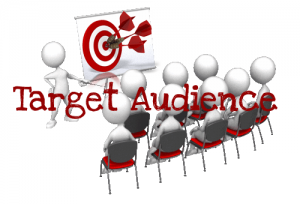This is a great post by
Publetariat’s April Hamilton who believes the time has come for indie authors to take a serious look at their marketing lists and question who they should be targeting to promote their books. Bombarding fellow authors in a writing community with promotional emails about a new book is still something authors constantly do and I find it hard to get my head around this practice. It is the most fundamental difference between marketing by a traditional publisher and marketing by authors within the self-publishing community. And it’s not just a practice limited to self-published authors within the community. Author solutions providers also do it, probably because authors tend to supply their providers with a marketing email list and solutions providers will be quite happy to flaunt their services into the bargain.
Authors and publishers need to engage with READERS – not other authors. Authors need to target readers, specifically the ones reading their genre of books and that is achieved by working hard to build a fan base as an author with appearances at bookstore and libraries, investing time on book fan pages and author websites, and spending time within book reading communities.
As Hamilton rightly points out:
“You may also think that since writers are readers too, it’s totally legitimate to promote to them the same as you would any other member of the public. But the thing is, most indie authors don’t promote to one another the way they would to the general public, they often think nothing of spamming and haranguing their fellows in ways they would never even consider doing to the general public. For example, they may think it’s totally fine to post a promotional message and link to their book’s product page on the Facebook wall, page or timeline of an indie author ‘friend’, but would never dream of doing so on other Facebook members’ walls, pages or timelines. They would never send out a “please buy my new book, I really need your support” email to their PTA or church email list, but don’t hesitate to do it to their own email list of indie authors.”
Don’t take this as a personal rebuff from me as an author here on this page. I’m happy to hear and engage with authors and their books and about their publishing experiences because the subtle difference is that I’m not just an author. My real bread and butter and day-to-day job
is about authors and publishers, because I’m a full time publishing consultant. Authors and publishers are my target audience, because they are potential clients and customers of my services and interested in reading about the publishing industry! However, the vast majority of authors are also investing a great deal of time in promoting their books to readers, rather than waiting for the next cheer-leading bus to arrive in their email inbox. When I wear my author hat I have to shift my target perspective and appeal to my readers – some, of course, because of the nature of my social and ‘work’ networks, are authors, but the majority of my target audience are bus drivers, electricians, nurses, health care workers, construction workers, estate agents etc. Most of them have families and their own lives to live and they don’t frequent these pages nor give the remotest toss about
The Independent Publishing Magazine, mind you, they might be interested in
The Memory of Trees as readers.
As Hamilton concludes, and I firmly agree with her; the best hours you can spend today is going through your marketing email list and fine-tune it to identify your readers. They are out there – just not where you keep looking all the time!
“Identifying your target demographic, locating its members and crafting a promotional strategy that’s tailor-made to appeal to that demographic is hard work, but it’s the only kind of promotion and marketing that truly builds a dedicated and enthusiastic readership from the ground up. An appreciative readership becomes both a fan base and a cheering section, filled with people who are very happy to recommend a book they’ve discovered and enjoyed. That kind of fan base grows organically, so long as the author or publisher doesn’t screw up the relationship by subjecting the fans to spam or trampling on their boundaries.”













This comment has been removed by a blog administrator.
This blog site is pretty good! How was it made . I view something genuinely interesting about your site so I saved to my bookmarks . You can visit my site.
Email list providers